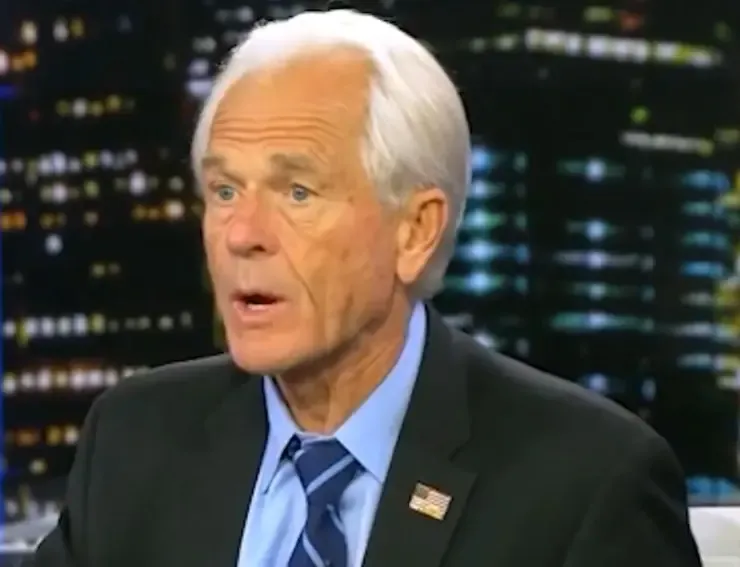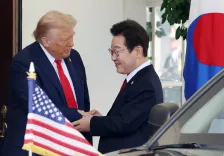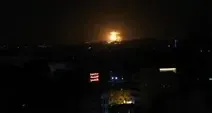Is India Really 'Coming to the Table' for Trade Negotiations?

Synopsis
Key Takeaways
- Brendan Lynch's visit to New Delhi aims to revive trade talks.
- Peter Navarro claims India is ready to negotiate, despite criticisms.
- High tariffs and oil purchases from Russia remain significant issues.
- Trump's recent statements indicate a more conciliatory approach.
- Successful negotiations could unlock potential in the India-US partnership.
New York, Sep 16 (NationPress) As US Assistant Trade Representative Brendan Lynch was in New Delhi for discussions, President Donald Trump’s Senior Trade Advisor Peter Navarro, known for his critical stance towards India, remarked that the country is "coming to the table" to engage in trade negotiations.
However, he pointed out that India's oil imports from Russia are a looming issue affecting the trade dynamics between the two nations.
During an appearance on the CNBC program Squawk Box on Monday, he stated, "India is coming to the table".
Lynch's visit is seen as a positive signal for a potential trade agreement, especially following encouraging statements from both Trump and Prime Minister Narendra Modi after a period of intense negotiations.
Navarro mentioned, "Prime Minister [Narendra] Modi sent out a very conciliatory, nice, constructive tweet, whatever they do in India, and President Trump responded to that."
However, there appears to be some confusion regarding the timeline.
Trump stated in a post on Truth Social on September 9 that discussions were ongoing and he felt optimistic about reaching a favorable outcome for both nations.
He referred to PM Modi as a "great friend" and expressed his eagerness to communicate with him.
PM Modi replied to Trump's message approximately 17 hours later, stating, "I am confident that our trade negotiations will pave the way for unlocking the limitless potential of the India-US partnership" and expressed his anticipation for discussions with Trump.
Navarro reiterated his grievances regarding India's high tariffs, while his interviewer joked about his previous remark calling India the "Maharaja of tariffs".
"They have the highest tariffs of any major country. They have very high non-tariff barriers," he asserted. "We have to address this like we do with every other country that does the same thing."
He also criticized India's recent purchase of Russian oil, which he claims was unprecedented before the conflict in Ukraine.
"Indian refiners partnered with Russian refiners immediately after the invasion, and they are profiting immensely," he stated.
Navarro argued that India's oil dealings with Russia ultimately burden US taxpayers, as funds from India could be used by Moscow for military purposes, thereby necessitating US support for Ukraine.
He suggested that PM Modi may have felt uneasy during his recent appearance alongside China's President Xi Jinping in Tianjin last month.
"Observing Modi on stage with China, which has been its long-standing existential threat, and Putin was quite a sight. I doubt he felt comfortable," he commented.
Sergio Gor, the US nominee for ambassador to India, informed a Senate panel last week that India’s Commerce Minister Piyush Goyal is anticipated in Washington this week for a meeting with US Trade Representative Jamieson Greer.
Meanwhile, Brendan Lynch was scheduled to meet with India's chief negotiator Rajesh Goyal during his visit to New Delhi.
Lynch, a former director for India in the US Trade Representative’s office, is part of the ongoing discussions.
Following the imposition of a 25% reciprocal tariff on India and an additional 25% punitive tariff for Russian oil purchases, Trump, who had previously criticized India's economy as "dead," recently shifted his tone.
In an interview with Fox News, he acknowledged that the tariff "creates a rift with India" and that implementing it was "not an easy thing to do."
There was also a moment where he seemed to express regret, indicating that the US had "lost" India.
Despite Trump's conciliatory gestures towards India, Navarro, fixated on trade issues and Russian oil, continued to express negative sentiments towards the country.









